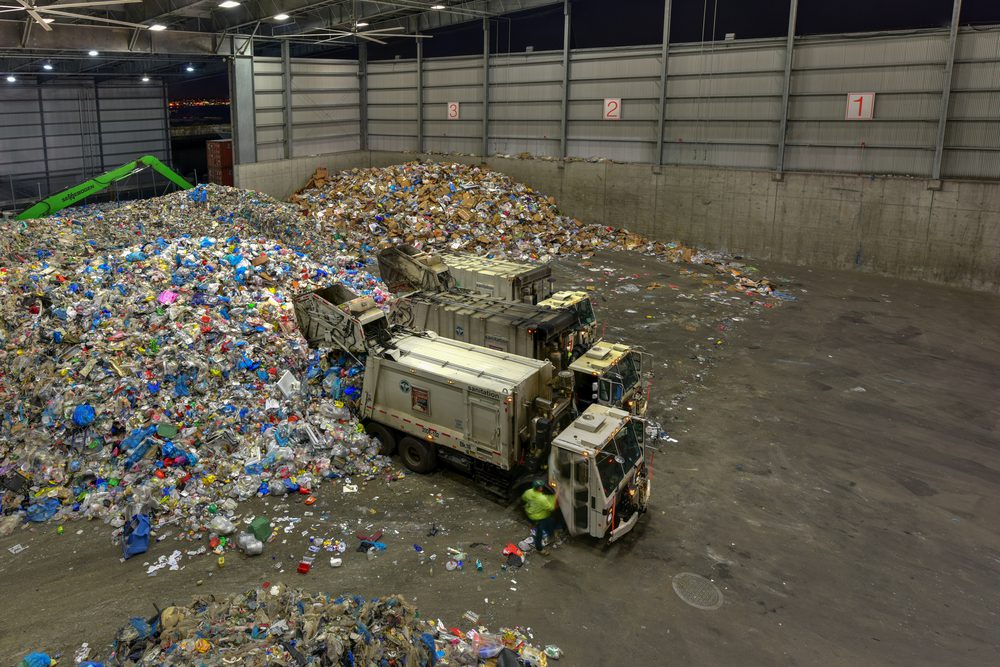Less than 6 percent of plastic household waste in the US was recycled last year, according to Greenpeace USA. In their new report released this week, the environmental NGO even argues that plastic recycling is a “myth” used by big oil, industry groups, and major corporations – Coca-Cola, PepsiCo, Nestlé, Unilever, and the like – used to greenwash their role in the plastic crisis.
Titled Circular Claims Fall Flat Again, the report found that US households pumped out an estimated 51 million tons of plastic waste in 2021, just 2.4 million tons (5 to 6 percent) of which was recycled.
This figure is down from a high of 9.5 percent in 2014 and 8.7 percent in 2018. However, they argue that much of this plastic waste was reported as recycled, but it was actually shipped to China or southeast Asia where much of it was burned or just dumped.
Many types of widely used plastics are avoiding recycling on a massive scale, the report says.
You can identify different types of plastics by looking for a number in the arrows triangle recycling symbol found on the packaging. For instance, one denotes PET (polyethylene terephthalate) and two is HDPE (high-density polyethylene), which are both widely used plastics used to make soda bottles and household products.
The report claims that only PET and HDPE plastic bottles and jugs are widely accepted by the 375 recycling plants in operation in the US today. For other plastics beyond PET and HPDE – the ones that are numbered from three to seven on their packaging – most never reach recycling.
Sort this out: The survey examined plastic products accepted by the ~375 material recovery facilities currently running in the US. Image credit: Felix Lipov/Shutterstock.com
Much of this trash is failing to be recycled despite people putting their plastic into recycling bins. Ultimately, failure is because plastic waste is extremely difficult to collect and can be almost impossible to sort for recycling. Many plastic products are also contaminated by toxic or biological materials, meaning they can’t be safely recycled. In other instances, it simply isn’t economically viable to recycle and cheaper to just dump.
And of the plastics that do make it through the recycling process, most are not truly recycled, the report claims.
Under definitions set out by the Ellen MacArthur Foundation’s New Plastics Economy (EMF NPE) initiative, an item must have a 30 percent recycling rate to receive the “recyclable” classification. However, the most common plastics in the US – PET and HDPE – have reprocessing rates of 20.9 percent and 10.3 percent, respectively. Every other type of plastic falls even further behind, with reprocessing rates of less than 5 percent.
Using the EMF NPE definition, this doesn’t actually qualify as true recycling.
“In short, no type of plastic packaging in the US meets the EMF NPE definition of ‘recyclable’,” the report reads.
The report concludes that plastic recycling is a “myth” that’s been spread by plastic producers, industrial groups, and global corporations. Greenpeace believes they have propagated the idea that the plastic pollution problem can be easily solved through recycling when, in actuality, the situation is far more complex.
As such, they argue that the only meaningful solution is for the planet to distance itself from plastic products as much as possible.
“Corporations like Coca-Cola, PepsiCo, Nestlé and Unilever have worked with industry front groups to promote plastic recycling as the solution to plastic waste for decades. But the data is clear: practically speaking, most plastic is just not recyclable. The real solution is to switch to systems of reuse and refill,” Lisa Ramsden, Greenpeace USA senior plastics campaigner, said in a statement.
“We are at a decision point on plastic pollution. It is time for corporations to turn off the plastic tap. Instead of continuing to greenwash and mislead the American public, industry should stand on the right side of history this November and support an ambitious Global Plastics Treaty that will finally end the age of plastic by significantly decreasing production and increasing refill and reuse,” added Ramsden.
Source Link: Just 6 Percent Of US Plastic Trash Is Recycled, Says Greenpeace Report
